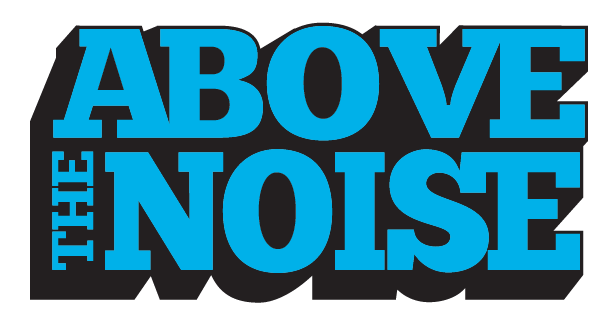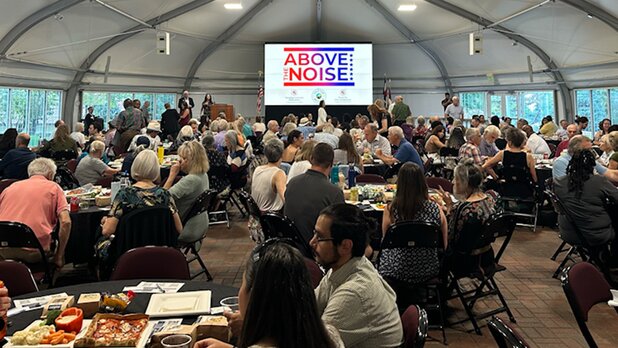
Above the Noise is Rocky Mountain Public Media’s statewide civic-dialogue series that brings Coloradans together—in person and online—to listen, reflect, and connect.
Through film, storytelling, and facilitated conversation, Above the Noise creates spaces where people can see one another as human, question assumptions, and explore what belonging means in our diverse state.
This initiative is part of RMPM’s broader Statewide Civic Engagement effort to strengthen trust, empathy, and participation across all 64 counties of Colorado.
Our Purpose
We believe civic engagement isn’t only about voting or policy; it’s about learning to understand one another and working toward shared solutions for the places we call home.

How It Works
Each Above the Noise event combines content and conversation:
- Screenings & Storytelling: Local and national public-media programs—documentaries, short features, and digital stories—serve as starting points for dialogue.
- Facilitated Conversations: Trained moderators and community ambassadors guide respectful, small-group discussions that invite multiple perspectives.
- Local Focus: Topics are chosen through listening sessions and community partnerships, ensuring every event reflects local realities, not just statewide headlines.
- Action & Reflection: Gathered insights are shared with participants, partners, and local newsrooms to keep the dialogue alive and inform future coverage and collaboration.

Why It Matters
- Rebuilding Trust: By connecting Coloradans face-to-face, Above the Noise helps restore confidence in local institutions and in one another.
- Centering Humanity: Participants practice listening across political, cultural, and generational divides.
- Strengthening Democracy: Dialogue becomes a form of civic participation—deepening understanding of local issues and shared responsibility.
- Reflecting Colorado: Events are intentionally designed to include rural, multilingual, youth, and historically excluded communities.

What's Next
In 2025–2026, Above the Noise 2.0 will expand statewide through regional gatherings co-created with local partners.
Each event will be a chance to explore how media and storytelling can spark empathy, elevate underheard voices, and inspire civic action.
Stay tuned for upcoming event announcements, highlights from past dialogues, and ways to host an Above the Noise conversation in your community.
Above the Noise – On Demand
See previous live webinars.
Building Trust in News: Principles for Journalists and Citizens
Understanding the Debate: Media Bias, Public Trust and the Role of Public Broadcasting
Trust, Bias & Belonging in Media – Session 3: Press Freedom Under Pressure
Local News, Public Trust, and the Cost of Consolidation
Get Involved
Want to bring Above the Noise to your town or organization?
Partner
Partner
Partner with RMPM to co-host a screening or conversation.
Volunteer
Volunteer
Volunteer as a community ambassador or facilitator.
Share
Share
Share your story or topic ideas for future dialogues.
Contact us: CivicEngagement@rmpbs.org

